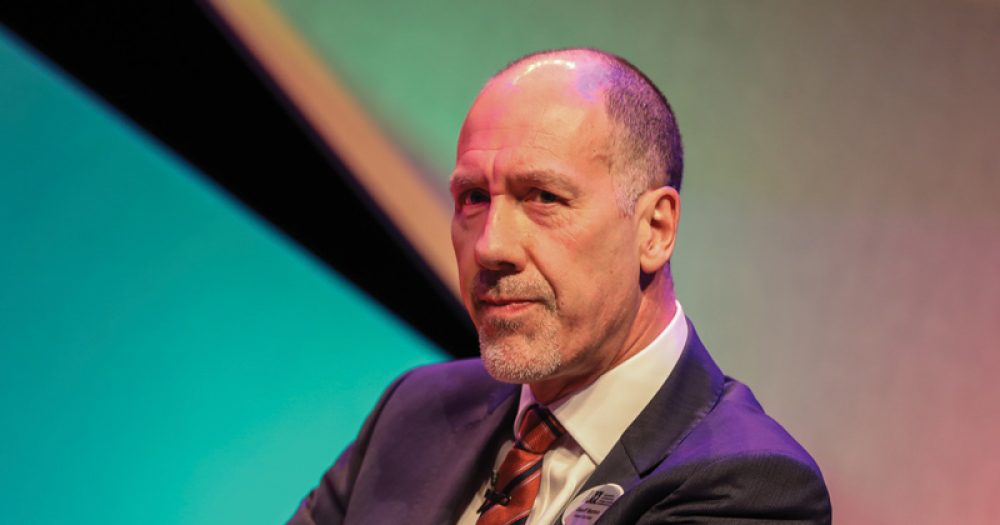Tales of teachers having to buy equipment for their schools are “unhelpful” and are eclipsing the more serious impact of education funding cuts, the leader of a headteachers’ union has said.
Geoff Barton, the general secretary of the Association of School and College Leaders, told Schools Week heads and teachers need to find a “different approach that gets beyond the echo chamber of education” if they are to stop being ignored by the Treasury in their quest for more funding.
It’s a soundbite, but it’s not a very helpful soundbite, because the reality is children not getting teaching assistants
The row over real-terms cuts to school budgets erupted again this week after skills minister Anne Milton jumped to the defence of education secretary Damian Hinds, claiming he didn’t “snub” headteachers who were twice turned away when they tried to meet with him about funding.
Pointing to the chancellor’s pledge of “little extras” for schools in last year’s budget, Barton warned that some in the Treasury “don’t believe there isn’t enough money there”, and said campaigners needed to change tack.
“I think sometimes what they might hear is stories of teachers having to buy equipment, and so on. That’s not what I’m hearing,” said Barton, who spoke to Schools Week ahead of ASCL’s annual conference this weekend.
“It’s a soundbite, but it’s not a very helpful soundbite, because the reality is children not getting teaching assistants. It’s much more significantly about social mobility than it is about whether we can afford certain bits of equipment.”
Barton warned of a “combination of different messages”, and said the argument needed to be “more forensic”. ASCL, he says, is now trying to communicate “what it costs to educate a child in this country” and what the consequences will be if the correct amount is not spent.
Barton cited a recent conversation with “someone pretty high up” in the Department for Education, who questioned why England spends more than many of its neighbours. When told that schools in England are expected to do more (for example, to support all SEND children), the DfE person then suggested that in some cases, such support may be a “luxury we cannot afford”.
“Now, that’s hugely concerning if there’s a mentality suggesting that a child with moderate learning difficulties somehow oughtn’t be entitled to the same as [those with more acute needs].”
It is now just over two years since Barton won a decisive victory in ASCL’s first ever leadership election. It was the first time the union council’s choice of leader had been challenged by a member of the organisation’s grassroots.
Once a maverick head who clashed regularly with government and Ofsted, Barton is now the figurehead of what is arguably England’s most pragmatic education union. Among his members are multi-academy trust chief executives, and ASCL has embraced the language of business that has swept through the schools community since 2010.
Now he wants professionals to start telling a more positive story about the job they do. His comments, as teachers and leaders prepare to begin what promises to be a particularly vocal union conference season, reflect how much has changed in the mind of a man who once wrote that he’d have to be “dragged kicking and screaming” into becoming the head of an academy.
“It’s since stepping out of education that you kind of realise how good education is,” he said.
“I think as trade unions, we haven’t been good at telling people about the positive stuff, about what’s going on, perhaps because that doesn’t cut through, doesn’t win the arguments in terms of funding or recruitment and retention and so on and so forth.
“But I’m determined that we do do that. We’ve got 650,000 more children in secondary and all the teachers we’re going to need to teach them. We have to tell a better story.”
Perhaps unsurprisingly, given his membership base, Barton is reluctant to weigh into the row over academy executive pay. He says it would be “problematic” for his union to provide a “checklist” to tell trusts what to pay. However, he suggests some of the top salaries may be hard to justify.
“It wouldn’t be up to me to say whether they are or they aren’t [justified]. All we’re saying is trustees have to be able to say what the process is by which they arrived at that [figure]. Where is the transparency?
“But I think anybody would look at some of those very high figures and feel real concern about that.”








Your thoughts